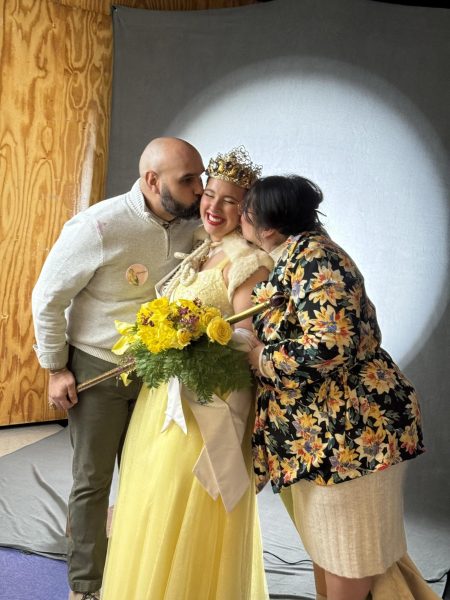Teens continue to fight stigma of mental illness
Depression is a chemical imbalance of serotonin and dopamine in the brain. From a technical standpoint that is all depression is, chemicals. But from a real life standpoint it is so much more.
Puyallup High School counselor Ted Fellin has worked with multiple students who suffer from depression throughout his years working in high schools.
“Depression is a temporary or long-term state of lowered wellbeing and a sense of doom. It is a sense of gloom and a sense of loneliness and unhappiness,” Fellin said.
On average, one out of every five high school students will deal with some form of depression, according to a retired therapist Bev Casio, whether it be mild situational depression or more severe and long-lasting clinical depression. For teenagers, one of the hardest aspects of depression is realizing that eventually it will get better and that depression is only temporary.
“It will get better, there is hope and that is hard to convey to a high school kid who is feeling like this is the end of the world,” Casio said.
Depression is not a disease that a person can run a test for, often when diagnosing depression there is a process which involves talking to a therapist. There is also no textbook case of depression and every situation has different influences.
A very common form of depression in the Pacific Northwest region is seasonal depression, Casio mentioned.
“There is depression from lack of sunlight [seasonal depression] and some people are very affected by that so they would have some of the same symptoms [as clinical depression],” Casio said.
In teenagers depression takes on a new form. Naturally, the high school years are emotional for students, they are seeking independence yet at the same time are still kids.
For senior Megan Reynolds, the hardships of depression are all too real.
Reynolds discussed losing her best friend to cancer just over a year ago and about how she has since struggled with clinical depression.
“I dealt with losing my friend and helping take care of her and having to go to school and say ‘I am fine’ while having it all build up,” Reynolds said.
On top of depression being a different disease in teenagers, most anti-depressants are not made to be given to the teen population.
“I had anti-depressants and they did not work for me and I did not want my happiness to be controlled by a pill,” Reynolds said.
Reynolds is now focusing on treating her depression in a more natural way by exercising and going on runs.
An association has begun to form more predominately over the last few years in the public eye between depression and suicide mainly due to celebrity suicides. Often the gap from mild depression to being so depressed suicide becomes an option seem to have been forgot along the way, according to Fellin.
“Many people have suicidal thoughts that are not depressed and often depressed people can have suicidal thoughts. Having suicidal thoughts does not mean you are going to commit suicide,” Casio said. “One out of five teens probably has suicidal thoughts just because so much is going on throughout your teen years.”
Casio did go on to emphasize that if people are talking about having suicidal thoughts they are always to be taken seriously and never ignored.
The thing about depression is that it is a very treatable disease, according to Casio. Yet for many students and even adults being able to admit to someone they have depression is very hard.
“Society’s view of depression is very simplistic and there is a lot of ignorance about it,” Fellin said. “There is this paranoia about depression that if you are depressed you are crazy.”
Students and even adults need to realize just how easily treatable their condition is.
“Some people think that if you are depressed you will always be depressed and this is not true, you can get through it and you can get better,” Casio said.
To help combat depression the Puyallup High School counselors are starting a new initiative to educate students.
“Our plan [as counselors] is to get out and do lessons on this stuff, so that kids know they can come to us,” Fellin said.
Depression while in the moment may seem like the end of the world there is always a bright light at the end of the tunnel. Physiologically, depression is a chemical imbalance in your brain of serotonin and dopamine. Psychologically, depression is more complex which is why it is important to at least talk to a friend about your emotions and try to seek help.



